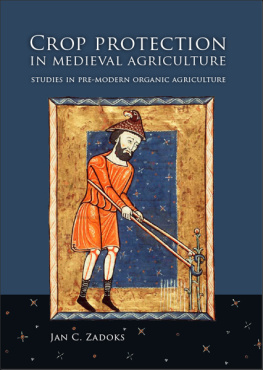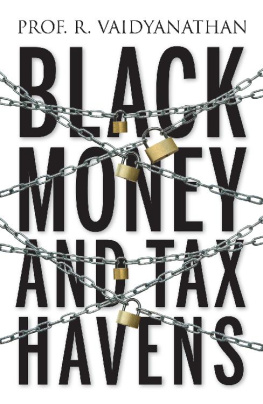Studies in the Transformation of U.S. Agriculture
Other Titles in This Series
The Cooperative Extension Service: A National Assessment, Paul D. Warner and James A. Christenson
The Organization of Work in Rural and Urban Labor Markets, Patrick M. Horan and Charles M. Tolbert II
Rural Society in the U.S.: Issues for the 1980s, edited by Don A. Dillman and Daryl J. Hobbs
Rural Public Services: International Comparisons, edited by Richard E. Lonsdale and Gyrgy Enyedi
The Impact of Population Change on Business Activity in Rural America, Kenneth M. Johnson
Science, Agriculture, and the Politics of Research, Lawrence Busch and William B. Lacy
Technology and Social Change in Rural Areas, edited by Gene F. Summers
The Social Consequences and Challenges of New Agricultural Technologies, edited by Gigi M. Berardi and Charles C. Geisler
Available in hardcover and paperback.
About the Book and Editors
In recent years, the consensual view of rural society has been challenged by theorists identifying the conflict, exploitation, and power relations in rural society. Beyond this theoretical challenge, empirical studies of the sociology of agriculture have provided a fresh understanding of the dynamics of U.S. agriculture. This book contributes to the growing literature by providing a historical perspective. The contributors explore historical developments in U.S. agriculture within the context of the larger political economy.
The book opens with a review of the similarities and differences between the critical rural sociology of today with that of the 1930s and moves on to a study of the accumulation process in U.S. agriculture. Other issues covered include the erosion of the southern class structure during and after the 1930s, the landed aristocracys reassertion in the post-bellum south, changes in the class structure and locus of agriculture in the midwest, and historical developments in the labor process and in capitalist agriculture in California. The concluding chapter provides a framework for studying both the origins and the consequences of state agriculture policies.
Until his death on June 28, 1984, A. Eugene Havens was professor and chairman of the Department of Rural Sociology at the University of Wisconsin in Madison. He served as director of the Center for Developing Nations Program from 1968 to 1970 and was a consultant to the Ford Foundation on agriculture and rural development in Latin America from 1975 to 1979. He also consulted with CIERA in Nicaragua on many aspects of post-revolutionary agricultural adjustment and planning. Gregory Hooks is assistant professor of sociology at the University of Indiana, Patrick H. Mooney is assistant professor of sociology at the University of Kentucky, and Max J. Pfeffer is a graduate student in the Department of Sociology/Rural Sociology at the University of Wisconsin.
THE RURAL STUDIES SERIES of the Rural Sociological Society
Editorial Board
Chairman, Frederick H. Buttel, Cornell University
Associate Editor, Charles Geisler, Cornell University
Rabel Burdge, University of Illinois
Frederick Fliegel, University of Illinois
Jere L. Gilles, University of Missouri
Steve Murdock, Texas A&M University
David L. Rogers, Colorado State University
Rural Studies Series, Sponsored by the Rural Sociological Society
First published 1986 by Westview Press
Published 2019 by Routledge
52 Vanderbilt Avenue, New York, NY 10017
2 Park Square, Milton Park, Abingdon, Oxon OX14 4RN
Routledge is an imprint of the Taylor & Francis Group, an informa business
Copyright 1986 by the Rural Sociological Society
All rights reserved. No part of this book may be reprinted or reproduced or utilised in any form or by any electronic, mechanical, or other means, now known or hereafter invented, including photocopying and recording, or in any information storage or retrieval system, without permission in writing from the publishers.
Notice:
Product or corporate names may be trademarks or registered trademarks, and are used only for identification and explanation without intent to infringe.
Library of Congress Cataloging-in-Publication Data
Main entry under title:
Studies in the transformation of U.S. agriculture.
(Rural studies series)
Bibliography: p.
Includes index.
1. AgricultureSocial aspectsUnited State
Addresses, essays, lectures. 2. United StatesRural
conditionsAddresses, essays, lectures. I. Havens,
A. Eugene. II. Series: Rural studies series of the
Rural Sociological Society.
HD1765.S78 1986 307.72097385-3308
ISBN 13: 978-0-367-28907-2 (hbk)
Contents
, William L. Flinn
, Gregory Hooks
, A. Eugene Havens
, Neil Fligstein
, Carolyn Howe
, David R. James
, Dale Harrington
, Patrick H. Mooney
, Max J. Pfeffer
, A. Eugene Havens and Howard Newby
It is fitting that Gene Havens, the youngest of eight children, grew up on a small farm near Coming, Iowa, the site of much agrarian unrest, including the founding of the National Farmers Organization. In many ways, Genes life was a struggle to reconcile poverty, exploitation, and injustice with the belief structure of his origins. He began life immersed in the American Gothic" idealthat rugged individualism and hard work would provide equal opportunity for all, that rural society was classless in nature, that authority deserved unquestionable respect, that the freehold family farmer was a keystone of democratic capitalist society.
Early in his career, Gene used the agrarian rules to succeed within the system. He earned a bachelor of science degree from Iowa State University, where he was a student leader, and later a master of science and a doctorate of philosophy from The Ohio State University in 1960 and 1962, respectively. Enrico L. Quarantelli (social psychology), Everett M. Rogers (adoption-diffusion), Raymond F. Sletto (statistics) and A. Raymond Mangus (social interaction theory) were influential in his early intellectual development. Gene was a key collaborator in Everett Rogers early works on innovativeness and was greatly influenced by the social behaviorists and social psychologists, as were nearly all graduate students of this era. In reality, 1960s rural sociology was synonymous with adoption-diffusion of innovations. The McCarthy era still weighed heavily on the field of sociology and even the writings of C. Wright Mills, mild by todays standards, were considered too extreme, value-laden, and non-quantitative for most graduate programs in the land grant system. Gene and his fellow graduate students from OSU and other universities began, however, to question inquiries that started by considering individuals before the social totality was understood. This generation of rural sociologists was recruited mostly from small farms and small towns and often from families who did not prosper under the rapidly changing technological and social conditions of rural life at mid-century. These individuals did not share the ministerial backgrounds of the earliest rural sociologists nor, more important, did they share the notion that cultural and personal defects of rural people were responsible for the farm problem. Instead they believed that the farm problem was connected to the rural non-farm problem and to the small town problem. They did not seek to adapt the individual to inevitable changes in the agricultural and social system. They traded the social problems orientation for a social structural bent; they wondered about the basic worth and designs of programs instead of the organizational details that might make ordained programs perform more smoothly. Genes dissertation, however, was in the tradition of adoption-diffusion and social psychology models, and its published version received the Cornell University Rural Social Award for best article in the field of change and development.










